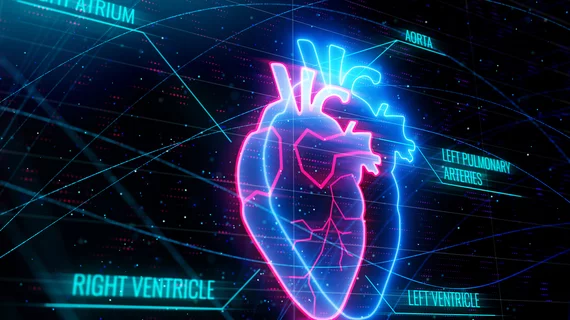New AI model uses ECG images to evaluate heart failure risk
Researchers have developed an advanced artificial intelligence (AI) model that uses electrocardiogram (ECG) images to assess heart failure risk, sharing their findings in European Heart Journal.[1]
The algorithm explored data from more than 231,000 patients from the Yale New Haven Health System and an additional 42,000 patients from U.K. Biobank and the Brazilian Longitudinal Study of Adult Health. Overall, a positive screen using the new AI tool was associated with a four- to 24-fold higher risk of new-onset heart failure than a negative result. This association was confirmed to still exist even when accounting for comorbidities and the risk of death.
“Using an image or photograph of a 12-lead ECG as its input, our model was able to accurately stratify heart failure risk across diverse populations in the United States, United Kingdom, and Brazil,” first author Lovedeep Singh Dhingra, MBBS, a postdoctoral fellow with Yale School of Medicine’s Cardiovascular Data Science (CarDS) Lab, said in a prepared statement. “We can now predict who is at risk of developing heart failure in the future, well before they show overt symptoms.”
“Every time a clinician obtains an ECG—a test that is already part of standard clinical care—our simple tool now offers an opportunity for screening and risk stratification for cardiovascular disease,” added senior author Rohan Khera, MD, MS, an assistant professor of medicine with Yale School of Medicine and director of the CarDS Lab. “The broad availability of ECG technology, even where resources are limited, enables early intervention and improved outcomes for patients who might otherwise go undiagnosed.”
The group also examined the potential of adding its new AI model to an existing risk prediction model, “Pooled Cohort Equations to Prevent Heart Failure,” and confirmed that it resulted in a “significant improvement” in performance.
Click here to read the full analysis.

